10 TV Writers Talk About Abortion on Television

Abortion is a common medical procedure in the United States but you wouldn’t know it watching television, where a woman choosing to terminate a pregnancy has been a hard limit for most broadcasters until recently. (Criminal activity though? That's practically a TV prerequisite.) Here, 10 show creators and writers share their experiences developing 12 abortion storylines, in episodes that aired from 1972 through 2016, including details of their writing process and network pushback.
Their storylines encompass a vast array of situations: teenagers having abortions and women who are already mothers having abortions; abortion in the aftermath of rape and in the context of a loving relationship; abortions that are agonizing decisions and those that are not. The interviewees also reflect on why it’s taken four decades for reproductive rights to make real progress on screen - and why, in a political era where women's bodies are under threat in ways they've not been for decades, TV has a powerful advocacy role to play.
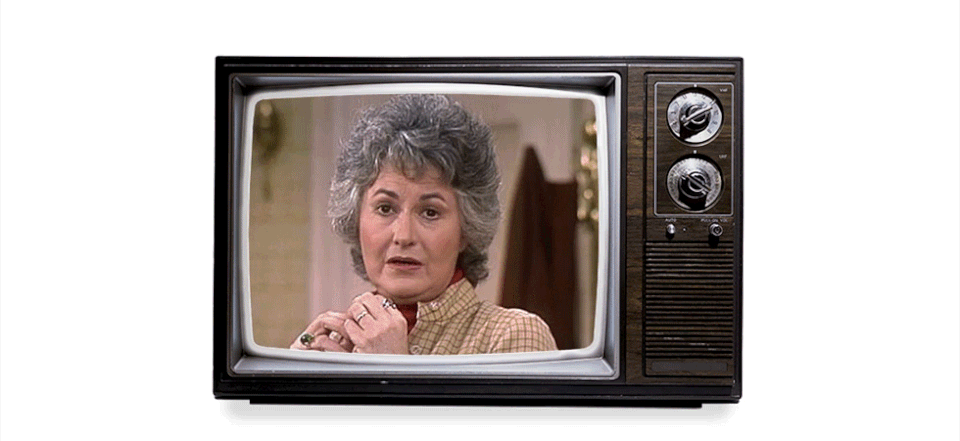
Maude (1972)
Season 1, Episodes 9 and 10, "Maude’s Dilemma, Parts 1 & 2"
Aired on: CBS
Synopsis: Forty-seven-year-old Maude Findlay (Bea Arthur), the show’s eponymous heroine, announces to her family and friends that she's unexpectedly pregnant. Maude and her husband, Walter (Bill Macy), both assume the other wants to keep the baby - Walter has never had a child before - but once they have a conversation about it, they realize neither of them particularly wants a baby and that abortion is the best decision. Maude’s adult daughter is supportive, reminding her that abortion is now a legal option in New York, where they live. The episode aired in November 1972, two months before Roe v. Wade was decided and made abortion legal throughout the United States.
Norman Lear, creator: "We wanted to do a piece on Maude finding herself pregnant, and facing the idea of having a child at 50, and being unable to bear the thought of it for the sake of the child. She had a daughter already, who agreed with her decision, and a husband. I had a good relationship with Bill Tankersley, the head of program standards and practices for CBS at the time, but when I raised it, he said, 'Come on, you’re kidding.' I said, 'No, I’m not kidding.'"

Ultimately, Lear and his writers agreed to turn the episode into a two-parter and add in a new character solely to create balance. "We invented a friend of Maude's that we never saw again [after that episode]," Lear recalls, "a woman who had four kids and was accidentally pregnant with her fifth kid. She didn’t want another child but in no way would she consider not delivering that child." Since Maude’s friend represented the polar opposite of Maude’s decision, the episode was allowed to air.
"When the episode initially aired, there was no big backlash. I got maybe a half-dozen letters." It was only once the show was in reruns, several months down the line, that the backlash began. "Everybody knew when that episode was going to be re-aired, and by then, the religious right had their guns aligned. They lay down in front of my car in L.A. and [CBS founder] William Paley's car in New York. But that wasn’t 'the American people' speaking. It was a minority."
"I never thought of the storyline as advocating. The whole idea of doing 'messages' - the old phrase used to be, 'Hey, pal, you got a message, take it to Western Union.' So I wasn’t doing messages, but the writers and I were aware of what was happening up the street, what was in the papers, what we were experiencing in our own lives."
It’s bewildering to Lear that, more than 40 years on, so little has changed. "It’s pathetic," he says. "I can’t imagine an excuse for staying away from [the subject of abortion], if it’s well discussed and you understand each point of view. The establishment likes to go along with that old idea that 'nobody ever lost money underestimating the intelligence of the American people,' and I think it’s dead wrong. There’s a sense that people are stupid, and we have to protect them. They’re not! And we don’t!"

Degrassi High (1989)
Season 4, Episodes 1 and 2, "A New Start, Parts 1 & 2"
Aired on: CBC Television in Canada, followed by PBS in the U.S.
Synopsis: Erica Farrell (Angela Deiseach), a teenager from a Roman Catholic family, is distressed to discover she’s pregnant. She visits an abortion clinic and makes an appointment for the procedure despite being frightened by protesters at the location, and Erica’s identical twin, Heather (Maureen Deiseach), is furious, telling Erica it’s a sin and refusing to support her. The episode ends with Heather having a change of heart after a conversation with their friend Spike Nelson (Amanda Stepto), a teenage mom, who tells Heather that Erica’s choice is her own to make. Heather catches up to Erica outside the abortion clinic, tells her, "I don’t think what you’re doing is right, but you’re my sister, and I can’t let you do this alone," and walks hand-in-hand with her through the crowd of protesters.
Linda Schuyler, co-creator and executive producer: "We used the vehicle of identical twins to explore both sides of the issue ... Everybody was rightly nervous about it, because at the time, this was not a topic that was talked about on television, and particularly youth television." Just as Lear had done 20 years prior with Maude’s friend, Schuyler and her writers used Heather to counterbalance Erica’s decision to have an abortion; they also received more notes on this script than any other. "We couldn't be balanced in terms of the decision the character made - she went for the abortion. But there was every argument made throughout the episode so that she went into that abortion clinic with full knowledge of what she was doing."
PBS did make one crucial cut for the U.S. airing, Schuyler says: "In the full episode [which aired in Canada], the girls have to walk through anti-abortion protesters to get to the clinic, and there’s one protester holding a little plastic fetus, saying, 'This is the baby you’re killing.'" The PBS version omitted both that dialogue and the shot where Erica reaches the door of the clinic, leaving the episode on a note Schuyler considered more open-ended. "I think by not taking them right to the clinic, they wanted to leave it open that maybe she changed her mind. When she gets to the door of the clinic in the Canadian version, it’s more definitive." This was the only time a Degrassi episode was ever cut differently for its U.S. airing, according to Schuyler.
For Schuyler, depicting abortion as a legitimate option was not simply a creative choice, but a responsibility. "The early days of Degrassi were pre-internet, pre-Google, pre-social media, so television was one of the few places that kids could get their information. For Degrassi Junior High and Degrassi High, we had a large educational component." PBS published a teacher’s guide to accompany every episode of the show, and Degrassi was bought extensively by schools in both Canada and the U.S. for use in health classes. "When I was pitching Netflix two years ago, one of the young executives told me, 'Full disclosure: I am a Canadian and so I got all my sex education from Degrassi.'"

Everwood (2003)
Season 1, Episode 21, "Episode 20"
Aired on: The WB (which later became The CW)
Synopsis: Eighteen-year-old Kate Morris (Kate Mara) is pregnant by a boyfriend who’s skipped town and although she seems conflicted about what to do, her father insists she have an abortion. He approaches Everwood’s protagonist, Dr. Andy Brown (Treat Williams), and asks him to perform the procedure. Though Andy believes in a woman’s right to choose, he has some hesitation about performing an abortion, and his colleague Dr. Harold Abbott (Tom Amandes) warns him about the risk of word getting out in their small town, suggesting Andy refer Kate to a clinic in Denver. "Andy, for the safety of your family - doing this type of thing in this type of town could get a man killed," he warns. Harold later reveals he's secretly been performing abortions for years, as his father did before him, despite his fear of being found out. He agrees to perform Kate’s procedure and the episode ends with him attending confession at his Catholic church.
Vanessa Taylor, co-writer: "My understanding is that [creator] Greg Berlanti originally conceived of Everwood as being about a small-town doctor who performed abortions regularly, that that was his actual work." That premise, unsurprisingly, was a no-go, but Berlanti committed to telling that story in the first season. At the request of the network, the abortion wasn’t performed by the show’s protagonist, Andy.
"[The WB] had the instinct that this would be a very incendiary topic and they didn’t want that for the main character," says Taylor, who recalls mixed feelings in the writers’ room about the episode’s final scene, in which Harold is seen confessing. "We writers tend to be more liberal and so it felt in some ways like a concession, right? Like he was saying he had done something wrong. And do we want to say that? Because we don’t think this is wrong. But I personally felt like it was appropriate for this character, and for who we had presented him to be."
It was Berlanti’s personal commitment to the storyline that allowed the episode to take shape at all, Taylor says. "He really did want to do a show that was entirely about this guy’s practice, and around reproductive rights, and it was just not possible. Even getting one episode about abortion on the air seemed almost like a bridge too far and Greg used some political capital to get it done."
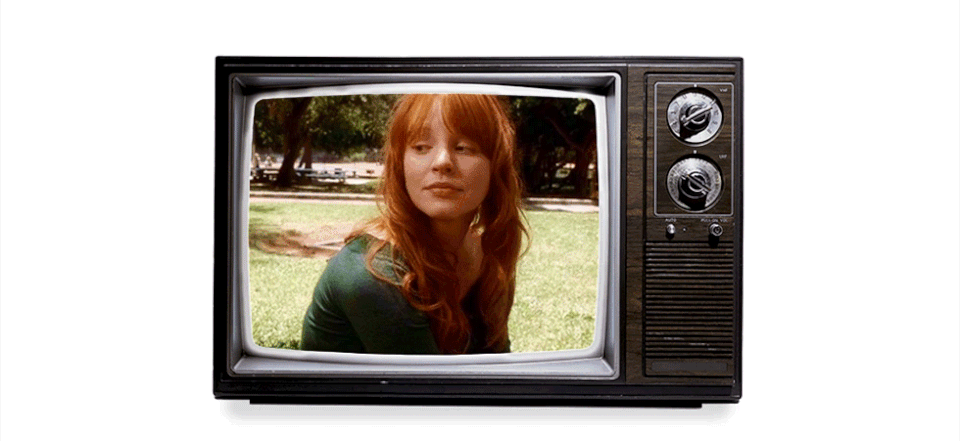
Six Feet Under (2003)
Season 3, Episode 12, "Twilight"
Aired on: HBO
Synopsis: Claire Fisher (Lauren Ambrose), a college freshman, discovers she’s pregnant with her ex-boyfriend’s baby and matter-of-factly schedules an abortion. She doesn’t tell anyone in her immediate family, instead enlisting her brother’s ex-girlfriend Brenda Chenowith (Rachel Griffiths) to drive her to the clinic with the casual request: "You think you could give me a ride? I have to go get an abortion." The procedure is shown in some detail, then the scene cuts to a dazed Claire drinking juice in the recovery room.
Craig Wright, co-writer: "We wanted to do a storyline about abortion with very little emotion, and very little drama. That felt like an innovation, to have it be not much of a question, and not much of a problem, but at the same time not to sugarcoat the physical ordeal that it is." The physicality of Claire’s abortion is striking - Six Feet Under takes you inside the procedure room, where a doctor performs an ultrasound and administers a sedative. Even the episode’s title is an explicit reference to the medical logistics. Claire is put under twilight anesthesia, a state in which you are sedated but still conscious; as the doctor puts it "You’re not really gone, but you’re not really here."
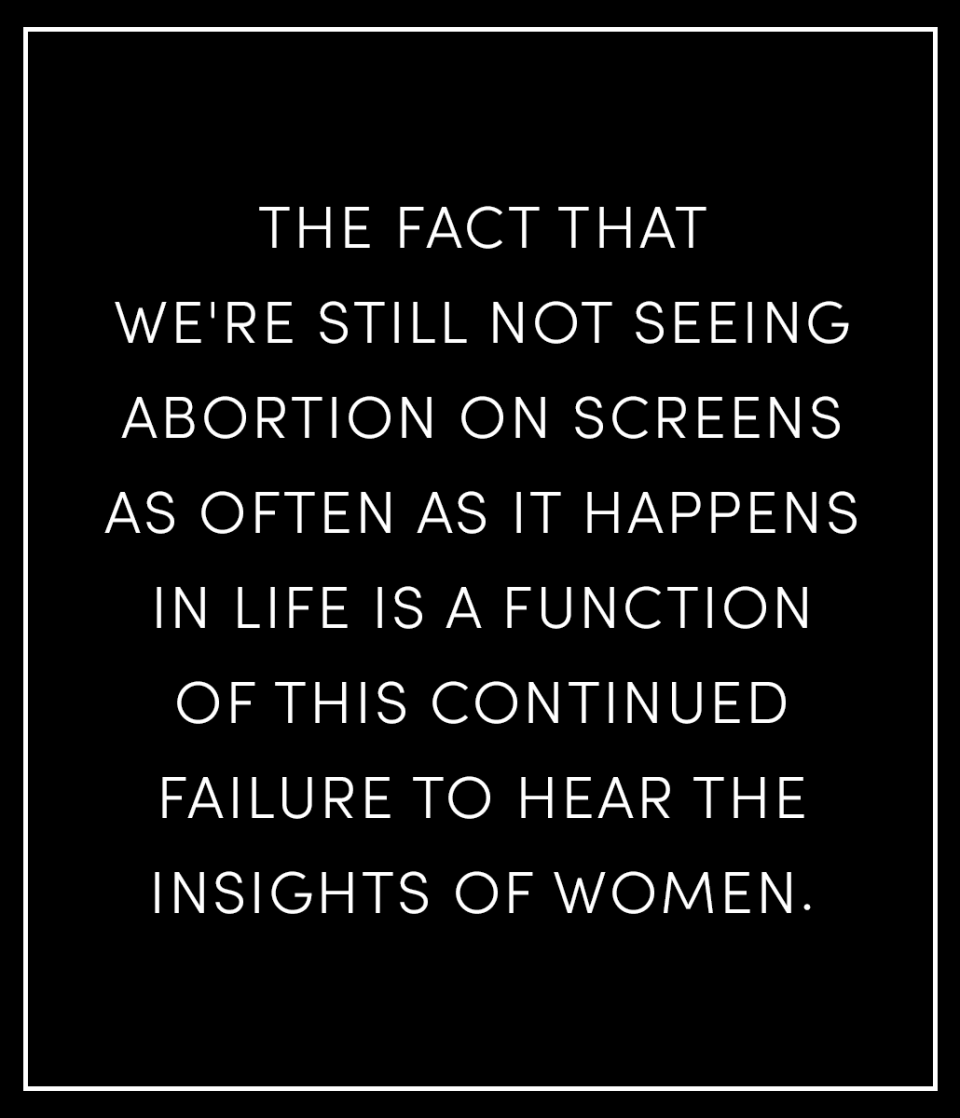
Every episode of Six Feet Under begins with a death, and in this instance, the haunting opening sees a death row inmate delivering his last words before he's given a lethal injection. Placing abortion alongside the death penalty was a pointed choice, Wright says, to subtly highlight the contradiction of believing in capital punishment while being opposed to abortion. "I wanted to put those two things in the same episode not to explicitly link them, but to say, 'Draw your own conclusions,'" he says. "In my opinion, once you start basing the legality of abortion on a notion of 'person,' then things get really complicated and slippery. I personally would much rather see abortion rights tied to the personhood of women, not of a potential fetus."
"What was exciting about working on this show, at that point in time, was that it normalized a lot of things that had been treated as super special [on television]. Death was super special, and homosexuality, super special, and abortion, super special. And on Six Feet Under, nothing is super special. Everything is just part of the world."
For Wright, TV’s continuing reluctance to depict abortion is symptomatic of a wider problem. "The failure to accept the insights of feminism is, in most cases, the greatest single source of pain and misery on the planet," he says. "The fact that we're still not seeing abortion on screens as often as it happens in life is a function of this continued failure to hear the insights of women. Men are still trying to hold on to an antiquated notion of their proper role in procreation and it's just wrong. I’m sorry but women carry the babies. They get to decide. The more the reality of women's experience is depicted, the faster these absurd towers of masculine nonsense will fall."
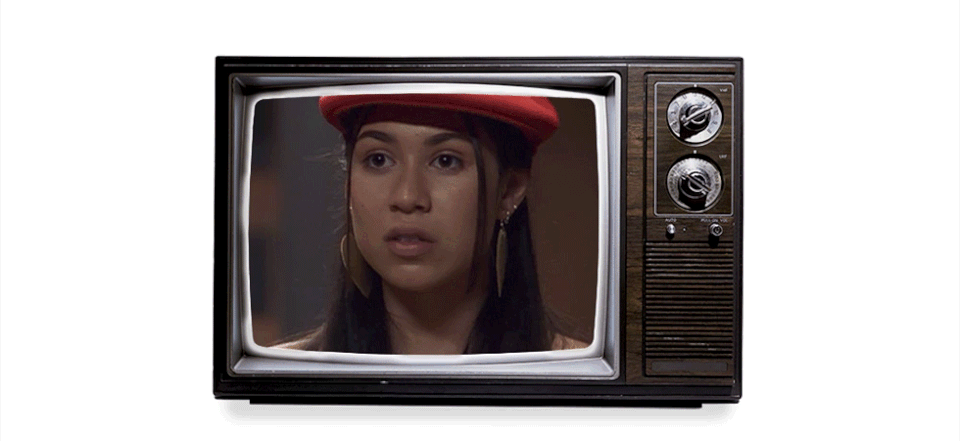
Degrassi: The Next Generation (2004)
Season 3, Episodes 14 and 15, "Accidents Will Happen Parts 1 & 2"
Aired on: The N (which has since become TeenNick), after a 2 1/2-year delay. The episodes aired in Canada in January and February 2004, but were shelved in the U.S. until August 2006.
Synopsis: Fourteen-year-old Manny Santos (Cassie Steele) discovers she's pregnant by her on-off boyfriend; she thought he’d used a condom, but when pushed, he admits he didn’t. Manny’s best friend, Emma Nelson (Miriam McDonald), is the child of a teenage mom (Spike, a Degrassi High character) and is therefore very much against Manny’s decision to get an abortion. Despite resistance from her best friend and ex, Manny goes through with her abortion and her mother takes her to the clinic.
Linda Schuyler, co-creator and executive producer: "Because Spike made the choice to keep her baby, Emma, we’ve done both sides of this issue. And when we started developing Degrassi: The Next Generation, we looked at the timeline and realized Emma is about the right age to be going into junior high." Emma and Manny were established as friends right from the first episode, which made for a powerful pro-life voice when Manny became pregnant, Schuyler explains. "Emma’s argument was, 'If my mom had aborted me in eighth grade, I wouldn’t be here now.'"
One early request from The N was that Manny tell her mother about the pregnancy and that her mom go with her to the abortion clinic - in Degrassi High, the twins never told their parents. But even with that change, the episode was not allowed to air in its original form. "We had great broadcast executives, and they were as disappointed as we were that it couldn’t air," Schuyler says. Ultimately, the episodes ran more than two years later, as part of an "every episode ever" marathon leading into the season-six premiere, including a wrap-around segment in which experts discussed the issues of teenage pregnancy and abortion, turning this into a "special" rather than a regular episode.
"People are really polarized on one side of the fence or the other," Schuyler says. "They just can’t believe that the other side can be right. But we need to challenge people on narrow views, we have to be open to diversity of thought and diversity of people, and that's what our show has been about from the get-go."

Friday Night Lights (2010)
Season 4, Episode 10, "I Can’t"
Aired on: DirecTV
Synopsis: Sixteen-year-old Becky Sproles (Dora Madison) gets pregnant after a hookup with her classmate Luke Cafferty (Matt Lauria) and goes to Tami Taylor (Connie Britton) for advice. When Becky admits she isn’t sure she wants to have the baby, Tami calmly tells her, "I can direct you to literature for that." Throughout the episode, Becky wavers on whether to have the procedure - her mother is dead-set on an abortion, while Luke’s parents are very religious and expect her to have the child.
Finally, during a second conversation with Tami, Becky admits she doesn’t think she can take care of a baby but is afraid having an abortion means she’ll go to hell. Tami reassures her this is not true and she can make whatever choice is best for her own life. When Luke calls Becky later, she tells him that she "took care of it" and does not regret her decision.
Bridget Carpenter, episode writer and producer: "I was advocating for a story where we'd look closely at a character who really was not ready to be a mother and was much closer to childhood herself." The question that was asked every day in the Friday Night Lights writers’ room was, "What would really happen?" In this instance, Carpenter says, "Becky choosing to get an abortion would not be easy but it would really happen."
The powerful scene in which Becky asks Tami about going to hell was informed by Carpenter’s own experience growing up in a religious environment. "I did not get pregnant as a teenager, but I had friends who did, and I remember having those same questions." Tami’s balanced, compassionate response was inspired in part by Carpenter’s mother, who is both a Catholic and a feminist. "My mom taught me that you could belong to a church but not bend to its every idea. She taught me that personal contradictions can and do exist in all people. I thought about my teenage years when I wrote that scene, and about what I would want to tell my daughter."
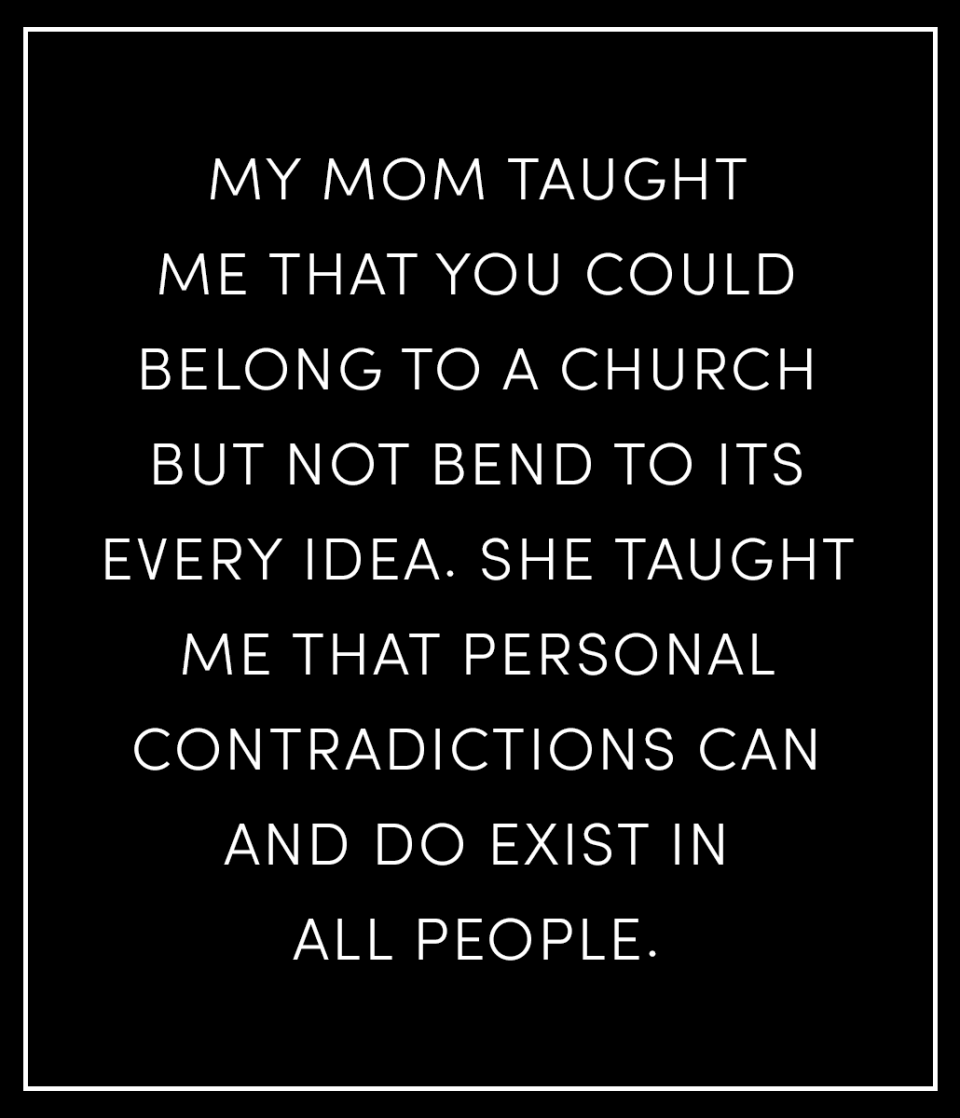
Though the politics of Dillon, the show’s fictional small-town Texas setting, was never discussed in the writers’ room, it’s clear from the fallout of Becky’s abortion that it leans conservative. There was a conscious decision not to have Becky herself be punished by her community but Tami’s career is later put in jeopardy when the school board discovers she informed Becky about her reproductive choices, including abortion; Luke’s mother is furious that Tami, as she put it, "told Becky to get an abortion," and Tami is eventually forced to resign as principal of Dillon High.
The network never asked Carpenter to discuss the storyline - by this time, the show had moved to DirecTV from its original home on NBC - and it aired as written. But the general reluctance to depict abortion doesn't surprise her. "Corporations and advertisers don’t want to lose money," Carpenter says, "and they don’t want attention for seemingly supporting a legal medical procedure that is a lightning rod for controversy. Abortion is considered a women's issue and a vast majority of corporations are led by men. So the ‘safe’ choice is to steer clear of abortion."

Grey’s Anatomy (2011)
Season 8, Episodes 1 and 2, "Free-Falling" and "She’s Gone"
Aired on: ABC
Synopsis: Dr. Cristina Yang (Sandra Oh) realizes she’s pregnant in the season-seven finale, and while she’s horrified, her husband, Dr. Owen Hunt (Kevin McKidd), is thrilled. Cristina has always maintained that she doesn’t want children - "There is no way we’re doing this. I am not a beautiful vessel for all that might be good about the future." - and her conflict with Owen is bitter and ongoing, to the point where Cristina temporarily moves out.
In the season-eight premiere, Cristina makes an appointment but doesn’t go through with an abortion, prompting her best friend, Dr. Meredith Grey (Ellen Pompeo), to ask whether she secretly does want to be a mom. She replies, "I wish I wanted a kid. I wish I wanted one so bad because then this would be easy." Finally, Meredith confronts Owen and tells him that, having been raised by "a Cristina" - a woman who didn’t really want a kid - herself, pressuring Cristina into having the baby would have devastating consequences. "Trying to pretend that she loves a kid as much as she loves surgery will almost kill her and it’ll almost kill your kid," she tells him. Owen finally supports Cristina in her decision and goes with her to the appointment.

Shonda Rhimes, creator: "The original plan was for Cristina to have an abortion during the first season. It was my first television show, so I was figuring out how to work in TV." When Rhimes spoke with standards and practices about the storyline, they didn’t block her so much as caution her about the fallout. "They were just explaining to me how rarely it had been done, how controversial it was going to be, how many warnings they would have to put on the episode." At this point, the show had not even started airing, let alone turned into the ratings juggernaut it ultimately became, and Rhimes was not ready to wade into the fray. "I didn’t know if we were going to last and I didn’t want to do anything that controversial yet, because it felt scary to me before even knowing how the show was going to be received." Nevertheless, the decision to change Cristina’s storyline from abortion into ectopic pregnancy in the first season wasn’t an easy one - "Sandra was disappointed, I was disappointed, we were all a little bit bummed."
Which is why, six years later, Rhimes was not backing down. "I was in a much different place, in terms of what I knew about television and how much experience I had doing it and how much I knew about my audiences. And I knew what I was willing to stand up for."
Abortion had by now become more commonplace in the Grey’s Anatomy universe thanks to its spin-off, Private Practice. "Addison [Kate Walsh] had been doing abortions on Private Practice forever and had said that she’d had one, and I think Violet [Amy Brenneman] had said that she’d had two," Rhimes recalls, "so it was not a thing. Addison really did a lot of them and there was even an episode where she said, 'In a nation of over 300 million people, there are only 1,700 abortion providers, and I am one of them.'’ It was important to me that she be that kind of doctor, and be proud of it."

Jessica Jones (2015)
Season 1, Episode 6, "AKA You’re a Winner!"
Aired on: Netflix
Synopsis: College freshman Hope Shlottman (Erin Moriarty) is in jail for murdering her parents, which she was forced to do by psychic villain Kilgrave (David Tennant) after he used mind control to kidnap and rape her. Having discovered she’s pregnant with Kilgrave’s baby, Hope pays another inmate to beat her up, anticipating she will miscarry. When that fails, she asks the show’s protagonist, private eye Jessica Jones (Krysten Ritter), to get her an abortion pill. "Every second it's there, I get raped again and again," Hope tells Jessica, who is herself a survivor of Kilgrave’s abuse. "I want to live, I want to have children, but I won’t give life to this thing. I won’t do it."
Jessica is already fighting to prove Hope’s innocence and agrees to help her. Before giving her the medication, Jessica warns, "Once you take this, there’s no do-overs. You’ll be sick as shit for eight hours so I need you to be 1,000 percent sure." Without hesitation, Hope swallows the pill and murmurs to herself, "Please work fast."
Melissa Rosenberg, creator: "What I love about that scene is that when Jessica asks, 'Are you sure?' you think there’s going to be that familiar, agonizing, very-special-episode conversation about it. But I didn’t feel like there should be a debate, thinking about what a young woman in Hope’s situation would realistically be feeling. It would have felt inauthentic for there to be a big, episode-long discussion about whether she should have the baby or not."
In developing Hope’s storyline, Rosenberg drew on her experience writing the Twilight franchise, the final installment of which famously pivots on the pro-life stance of its author, Stephenie Meyer. Bella (Kristen Stewart) is pregnant with a vampire baby that could kill her but at no point does she consider a termination. "In the book, the feeling is that Bella doesn’t have a choice, because that is Stephenie’s point of view," Rosenberg says. "It’s not my point of view - I respect her stance but I disagree with it. And so I was really struggling, I didn’t know how I could write this movie in a way that didn’t go against my own beliefs." Her sister-in-law, a former ACLU attorney, pointed out that having a child is, in itself, a choice. That ended up being Rosenberg’s way in, and throughout her script for Breaking Dawn - Part 1 she repeatedly emphasized the word "choice" in describing Bella’s pregnancy. Still, Jessica Jones gave her the opportunity to more clearly relay her personal stance.
Hope describing her fetus as "a thing" is both striking and entirely believable, given the trauma that’s been inflicted on her by her rapist. "I think a lot of people are very wary about that," says Rosenberg, referring to the idea that a woman might feel negatively toward her fetus, "and I’m just not."
"Given what Hope had been through, there was just no question to me that she would feel this way. Of course there are situations where a long discussion is warranted, but I do believe there are also situations where it is not a difficult decision."

Scandal (2015)
Season 5, Episode 9, "Baby, It’s Cold Outside"
Aired on: ABC
Synopsis: The main storyline is this episode sees Senator Mellie Grant (Bellamy Young) filibustering on the Senate floor to oppose a spending bill that threatens Planned Parenthood, as Olivia Pope (Kerry Washington) watches admiringly from the sidelines. Feeling trapped by her new role as the president’s live-in girlfriend, Olivia is clearly stirred by watching his ex-wife thrive. It’s not until later in the episode that viewers learn Olivia is pregnant - when she arrives at a clinic and has an abortion. There is no discussion with anyone and the episode ends with Olivia back on her own couch, in her own apartment, looking genuinely at peace for the first time in too long.
Shonda Rhimes, creator: "We'd done an episode earlier in the show with a soldier who had been raped and became pregnant, and Olivia went into the procedure room with her and held her hand." Although going into the procedure room remains relatively rare on network television, Rhimes said that the scene was not controversial at the time: "Because I’ve been writing a medical show for so long, to me, this is a medical procedure. It was not a big deal to me. And when we did it with the soldier, it wasn’t a big deal to anybody else either." When it was Olivia Pope getting the procedure, the network’s response was very different.
"I stood up for it, really hard," Rhimes says, confirming that standards and practices wanted to cut the abortion scene. "But you couldn't tell me that there was anything wrong with that scene, since it was the exact same scene that we had done with the soldier that nobody had a problem with." Rhimes knew she was right, and ultimately standards and practices relented, allowing the scene to play out as scripted: Olivia in a hospital gown, calmly undergoing the procedure as Aretha Franklin’s rendition of "Silent Night" plays. "It felt really important to me that Olivia make that choice. But it was very interesting how many people said to me, 'But Olivia wants to have kids!' I was like, 'I need you go to back, and look at the show, and tell me where that character has ever said that she wants to have kids.'"
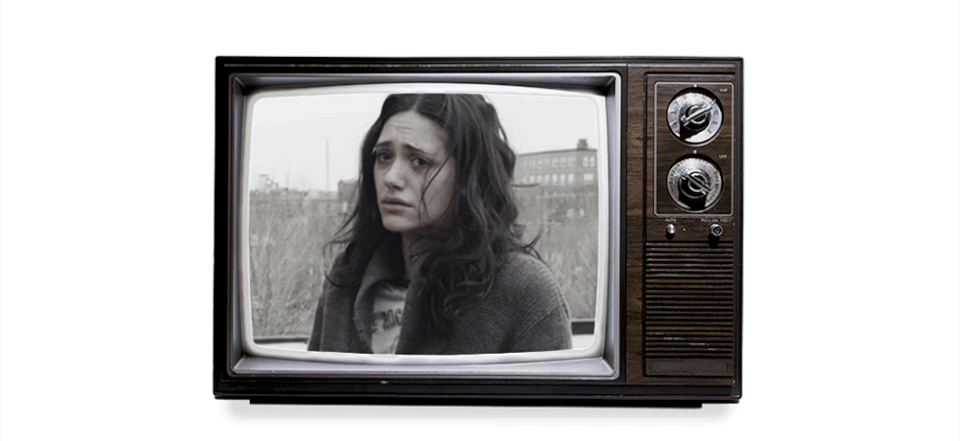
Shameless (2016)
Season 6, Episode 6, "NSFW"
Aired on: Showtime
Synopsis: Fiona Gallagher (Emmy Rossum) has been the de facto caregiver for her younger siblings for years, due to their parents’ absence and neglect. But when she gets pregnant by her boyfriend, Sean Pierce (Dermot Mulroney), she immediately knows she does not want a child of her own, having already effectively raised several kids. Simultaneously, her younger sister, Debbie (Emma Kenney), becomes pregnant and chooses to keep her baby, despite Fiona trying hard to talk her out of it. Though it takes several episodes for the storyline to resolve, Fiona ultimately goes through with the procedure, which is depicted as mundane and thoroughly undramatic.
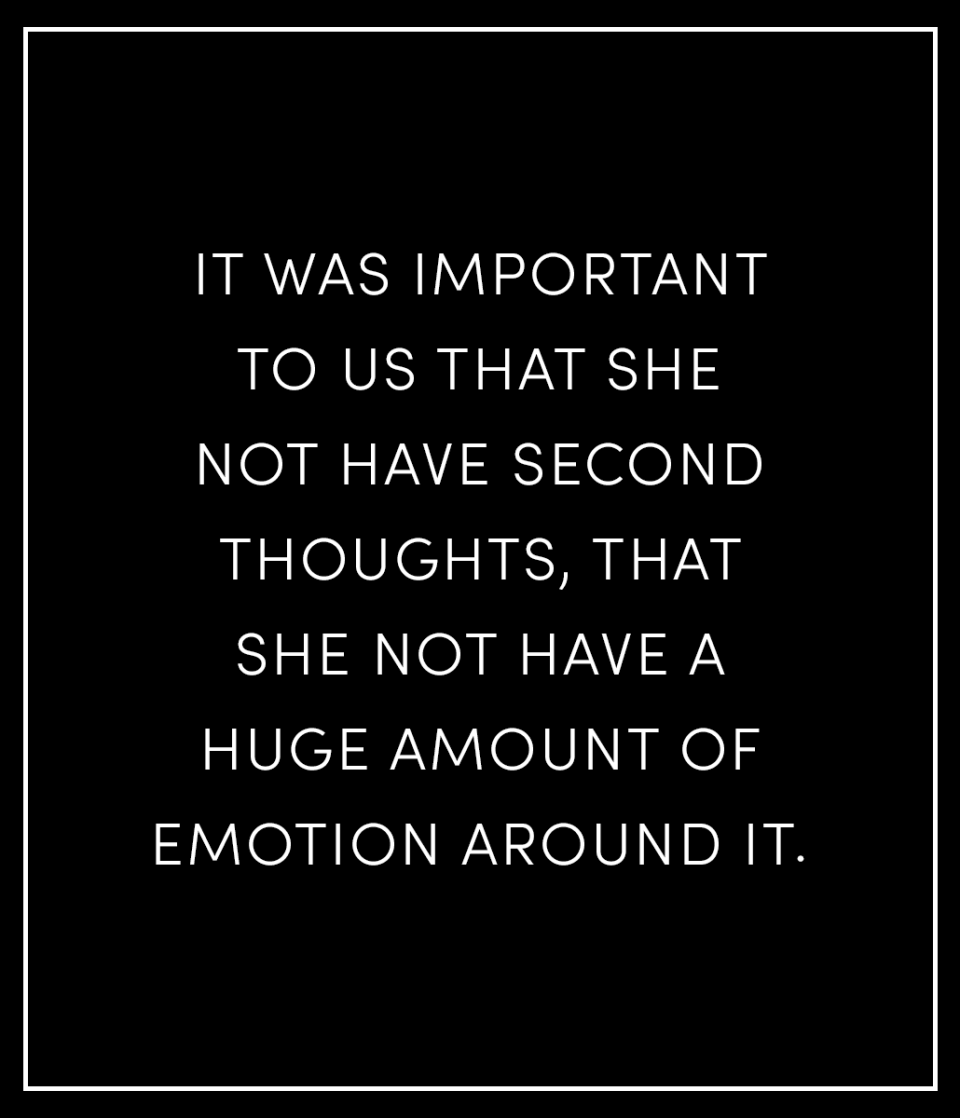
Nancy Pimental, executive producer: "What you often see is a character deciding to get an abortion and then changing their mind at the last minute, especially if they get pregnant with somebody who they care about. At the time, Fiona and Sean really cared about each other." Throughout the five-episode arc, several characters tell Fiona that she’ll change her mind but she never sways from her decision to have the abortion. "It was important to us that she not have second thoughts, that she not have a huge amount of emotion around it. Especially with what’s going on right now politically, it matters that we can show this as a practical choice for a woman that doesn’t have to have so much history and drama and weight around it."
On the flip side, with Debbie, "you think that for someone who’s 15 or 16, abortion is the smart choice because their whole life is ahead of them," says Pimental. What felt unexpected, and compelling, was to have Debbie say, "Actually, I don't have a lot of options given where I come from and my upbringing and my parental role models or lack thereof. I want to have a family. I want to be a mom."
Much like on Six Feet Under, the emphasis with Fiona's abortion was on showing the everyday nature of it. "Like, 'Let’s go get a milkshake afterward.' There’s no meaning to it, it’s just ... this was an accident, I’m gonna go take care of it, and I don’t have to put a lot of drama or hysteria or meaning on it."
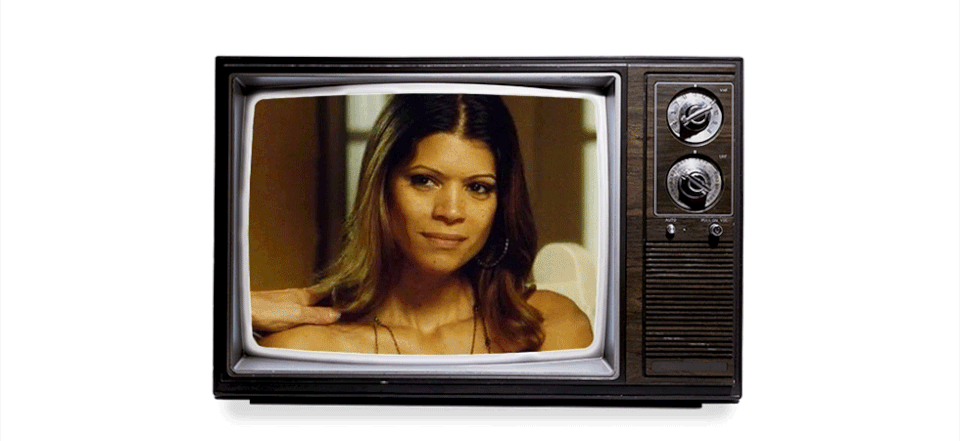
Jane the Virgin (2016)
Season 3, Episode 2, "Chapter Forty-Six"
Aired on: The CW
Synopsis: Xiomara Villanueva (Andrea Navedo), the mother of the show’s protagonist, Jane (Gina Rodriguez), is pregnant after a one-night stand with her ex-boyfriend Rogelio De La Vega's (Jaime Camil) biggest rival. Having already decided she didn’t want a child with Rogelio - i.e., she doesn’t want more children, period - Xo has no qualms about terminating this pregnancy. But the decision is not uncomplicated: Her mother, Alba (Ivonne Coll), is a devout Catholic and deeply upset when she discovers Xo has had the abortion. The two women come to an understanding, with Alba telling her daughter, "I don’t agree with your decision, but it’s your decision."
Jennie Snyder Urman, creator: "We were very conscious that abortion had come up a few times on our show and that our characters had always chosen to proceed with the pregnancy, so I felt we just owed another side of that story. There were obviously so many reasons why Jane decided to keep her baby - it's the whole backbone of the show - but we wanted to show a different choice. At the same time, we were looking for ways to keep Xo and Ro separated, and we decided it would be over the fact that he wanted to have kids and she absolutely didn't."
"So when she got accidentally pregnant, it felt like a very easy decision for her to have an abortion, because [her not wanting another baby] had already broken up her relationship with this person who she wanted to spend the rest of her life with. This was a baby from somebody who she didn't even like and so it felt like a pretty clean decision for her. It was a story that we could tell without resorting to the tortured abortion storyline, which has been done a lot. For some people, it is a tortured choice, and for some people, it's a relief."
But while Xo’s decision is uncomplicated, the reaction of her family - and specifically her mother, Alba - is not. "The drama was not Xo deciding to get the abortion, but deciding whether to talk to her much more religious mother about it, and seeing if they could find a space where they disagreed but agreed that they loved each other more than Alba hated abortion."
Urman is conscious of television’s power in politically uncertain times like this. "Although a majority of Americans do not want Roe v. Wade overturned, this time that we’re in feels very threatening and I think people are scared. I think art has always been a mirror of what's going on in culture, and also an advocacy tool. People watch and they attach to the characters, so they are able to watch characters they love thoughtfully going through something. It opens up a bigger debate and allows people to see themselves in different situations than were represented before."
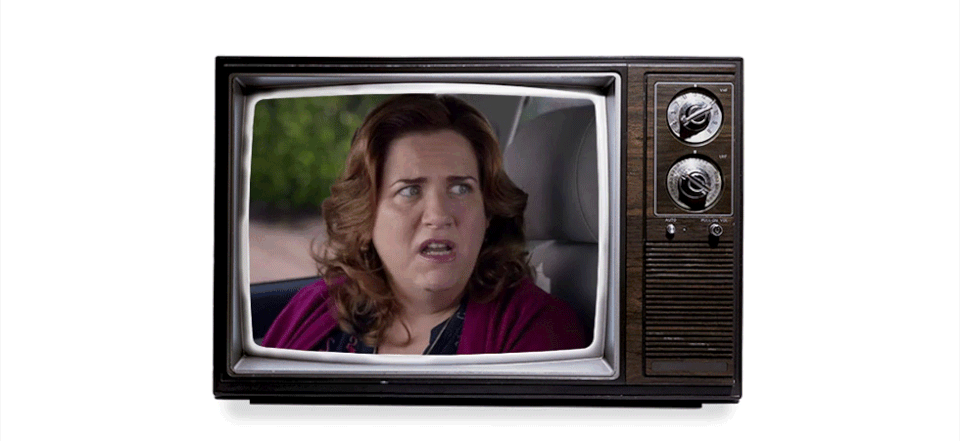
Crazy Ex-Girlfriend (2016)
Season 2, Episode 4, "When Will Josh and His Friend Leave Me Alone?"
Aired on: The CW
Synopsis: Paula Proctor (Donna Lynne Champlin) has recently made the decision to go to law school in her 40s, fulfilling a long-stifled dream. When she learns she’s pregnant, she knows that her choice is between keeping the child and pursuing her ambitions. (She and her husband already have children.) Later in the episode, it's clear Paula has had an abortion, with the nonchalant but wholehearted support of her family.
Aline Brosh McKenna, co-creator: "The only thing The CW raised with us was that Jane the Virgin was also doing [an abortion storyline], and I always think of them as our sister show even though we’re not on the same night. We said, 'If it doesn’t bother you, it doesn’t bother us.'" While still the underdog as far as broadcast ratings and awards recognition go, The CW has become arguably the most progressive and female-focused of the broadcast networks. "I think one of the reasons you're seeing an increase in these storylines is because there are more shows written by and about women," McKenna muses. "Someone once said we were the most gynecologically accurate show on television, and I think if you have a show with female co-creators and a writers’ room with seven women in it, we don't even think twice about it. Anyone who works on our show gets steeped in women's health issues pretty quickly."
"It’s been surreal to look back on this episode [after Donald Trump’s election]. We were writing it in an era where we took it for granted that there were certain rights that were not going to be under attack." At the time, this was not conceived as an abortion storyline, so much as a "Paula goes to law school" storyline, with Paula’s pregnancy jeopardizing her renewed dreams of becoming a lawyer. "She’s facing a mirror image of a choice she made earlier in her life and taking this leap into doing something she was encouraged to believe she couldn’t do," McKenna says. "Her father always told her, 'You’re a breeder, not a leader.'"
Paula knows that an abortion is the only way to preserve her new goals but still struggles to accept that it’s an option. "I am a married mother of two," she tells her husband. "Those options are for teenagers the month after winter formal." This line was an acknowledgement, McKenna says, of the judgment women in Paula’s position face, despite the fact that a majority of women seeking abortions are already mothers. "I'm in my 40s, and I just know so many women in a similar age range who have had to make a similar decision. We all know and love someone who's had an abortion, whether we know it or not."
Follow Emma on Twitter and Cosmo Celeb on Facebook.
You Might Also Like


